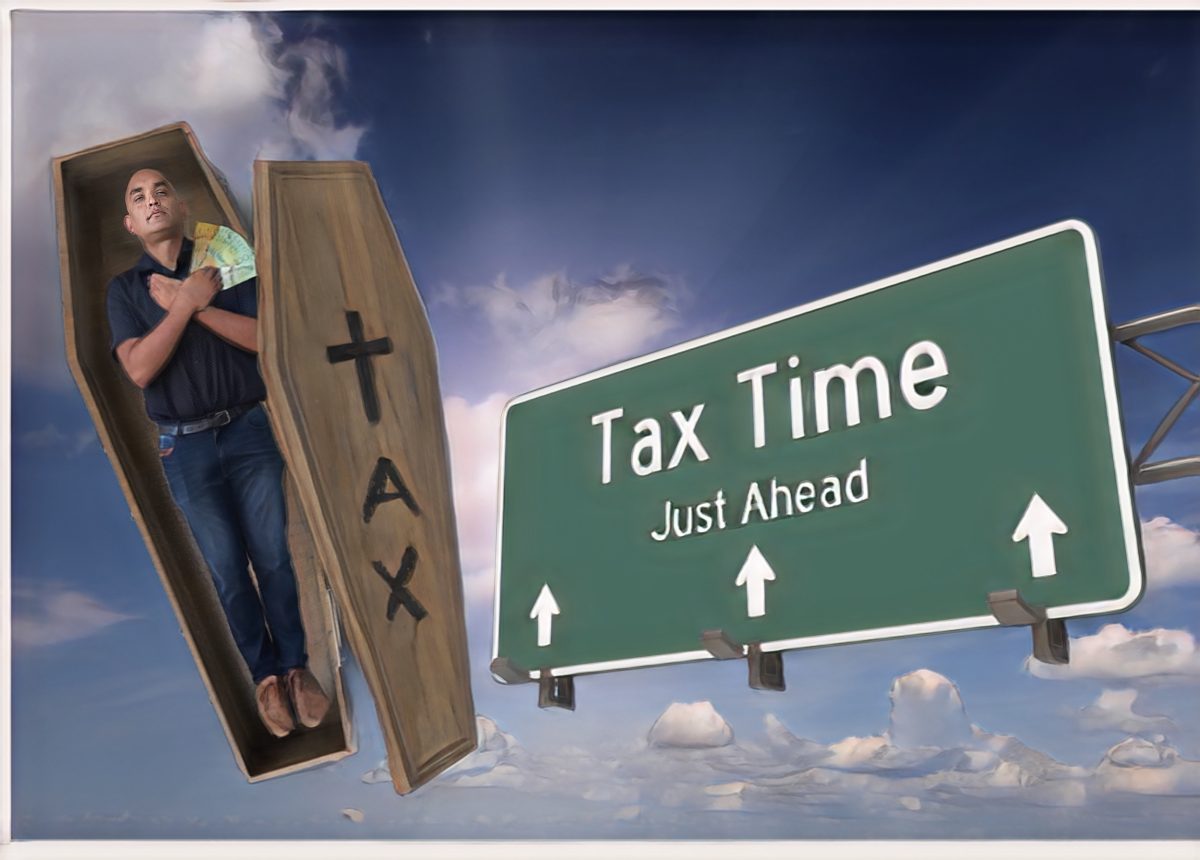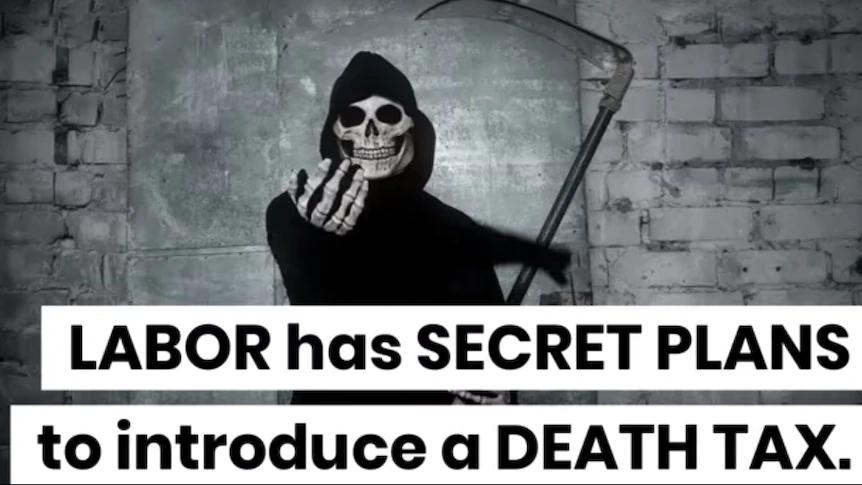
Oliver Jacques says he’d rather be taxed when he’s dead than when he’s alive. Image: Chris Roe.
Imagine you owe the Government $1000 but have a choice as to when you pay them.
You could hand over the dosh now, while struggling with the cost-of-living crisis.
Or they could take it from you many years from now, after you’re six feet underground in a coffin.
For most, the answer is simple, and explains why Australia would benefit from an inheritance tax – a fairer way for government to raise revenue than reaching into our pocket while we bust our guts at work.
An inheritance tax is a levy paid on the value of money and assets inherited from someone who dies. It’s a tax the federal government abolished in 1979.
Most developed nations still impose this levy on deceased estates, but it’s become a taboo topic in Australia. Opponents call it a death tax to make it sound evil and sinister.
For some reason, Australians seem to think it’s fine for government to siphon a third of the wages off a nurse on $65,000 a year, but are outraged at the idea a mining magnate’s son could lose a cent of his $100 million inheritance.
Compared to the rest of the world, our Government is heavily reliant on taxing personal income to raise revenue, but tends to under-tax things such as property, land and wealth.
Intergenerational reports warn our tax base needs to expand to pay for the health, disability and caring needs of our ageing population in the coming years.
We can’t raise income tax any further. Ordinary wage earners are already carrying the can for the nation while they’re raising their own families and paying rent or mortgages.
Higher income taxes just discourage people from working at a time we need to boost workforce participation to support a growing number of retirees.

Any suggestion of a death tax attracts vicious scare campaigns in Australia. This meme was circulated during the 2019 federal election campaign. Photo: Facebook.
Former NSW premier Mike Baird canvassed raising the GST higher than the current level of 10 per cent to raise more revenue. But this would hurt the most disadvantaged in our society – those who are already spending so much of their income on essential goods and services.
A death tax can be structured in a way that ensures poorer households aren’t impacted. In the UK, for example, up to $620,000 of a deceased estate is completely tax free, you are only levied on any amount you inherit in addition to that threshold.
A death duty, if introduced here, would only apply to relatively wealthy families whose children probably don’t need the money as much as our underfunded public schools and hospitals.
Opponents, though, claim any form of a death levy is a ‘double tax’, arguing retirees have already paid tax on the wealth they accumulated before it’s passed down to younger generations.
But everyone is subjected to so-called double tax all through their lives. I get taxed on my income, then taxed again when I spend that taxed income on goods and services (via the GST). I even get taxed on the miniscule interest I earn if I keep my already taxed income in a savings account.
Moreover, much of the wealth grown within superannuation funds is subject to minimal tax in Australia – indeed, it could be argued that ordinary workers are subsidising the inheritance received from wealthy superannuants.
It’s time a small proportion of this wealth was clawed back for the public good. The dead are in a better position to pay for the growing cost of aged care services than the living. What’s more, they’re less likely to complain about it.
I’ll be the first to put my hand up for a death tax. I want the Government to ease off me now, while I cope with soaring power bills and grocery costs. But once I die, go for your life. I can’t spend it anyway.
















